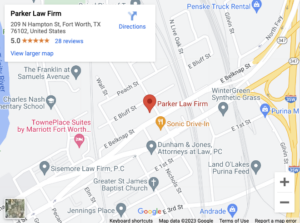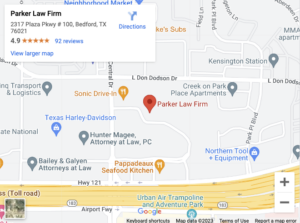Delay, Deny, Defend: How Insurance Companies Deny Claims and How Policyholders Can Fight Back

After an accident, most people do what they have always been told to do. They call their insurance company. You have paid your premiums for years, trusting that when you needed help, your insurer would be there. You believed the promises in their commercials. But when you finally need them, things change. Your calls go unanswered. The paperwork piles up. The person on the phone sounds cold and distant. Suddenly, you are no longer a person. You are just a claim number.
Many people are shocked to find out that the company they trusted is now working against them. This is not a mistake. Insurance companies are businesses. Their goal is to collect as much premium income as possible and pay out as little as possible in claims. They use a set of tactics to make the process confusing and frustrating, hoping you will give up or accept less than you deserve. Lawyers call this approach ‘Delay, Deny, Defend.’ Knowing how it works is the first step to protecting yourself.
Introduction: Why Insurers Deny Claims and Why Readers Should Understand Tactics
Once you file a claim, you stop dealing with a friendly customer service team and start facing a system focused on risk management. The insurance adjuster’s main job is to protect the company’s profits, not to make sure you are fully compensated. Every question, form, and offer is part of a process meant to reduce what they pay out. While a flat-out denial is the most obvious result, their approach is often much more subtle and difficult to spot. They rely on wearing you down over time, knowing they have far more resources than you do.
What is an Insurance Claim Denial?
An insurance claim denial means the company refuses to pay for your losses. Sometimes they say your policy does not cover the accident, or they blame you for what happened. But many denials are not clear-cut. Insurers use complicated policy language and technicalities to avoid paying. Even worse are the claims that are never officially denied but are delayed over and over. You get stuck in a loop of paperwork and unanswered calls. Meanwhile, your bills keep growing. The insurance company is hoping the stress will make you settle for less or give up.
Overview of Denial Tactics
The core philosophy of “Delay, Deny, Defend” is a three-pronged assault on your patience, your finances, and your will to fight. The delay comes first, manifesting as bureaucratic stonewalling. They might claim they never received your paperwork or ask for the same document multiple times. They may transfer you between departments, forcing you to retell your story again and again, hoping you’ll make a mistake or simply give up. The deny phase happens when they finally issue a rejection, often based on a weak or manufactured pretext, or when they make a “lowball” offer so insultingly small it amounts to a denial of the true value of your claim. Finally, they defend their position aggressively. They know that most people are intimidated by the legal system and lack the resources or knowledge to challenge a massive corporation. They are betting you will walk away, and tragically, many people do.
The Modern Insurance Playbook: A Deeper Look at Denial Tactics
While the core strategy remains the same, the tactics insurance companies use have evolved, becoming more sophisticated and, in many ways, more impersonal. If you feel like you are fighting a faceless, unfeeling system, it’s because you are. The feeling of being just another number is not your imagination; it’s a feature of a profit-driven model. And you are not alone in this fight. Data shows that in 2023, Affordable Care Act (ACA) marketplace insurance plans denied an average of 20% of in-network claims. This isn’t about isolated incidents of misunderstanding; it is a systemic, institutional practice of rejecting the very coverage people pay for.
Addressing Specific Denial Scenarios
Beyond a formal denial letter, insurers employ more subtle methods of rejection. One of the most frustrating is what are known as de facto denials. This is where the insurer doesn’t officially say “no,” but their actions (or inactions) have the same effect. They may approve a procedure but impose so many conditions that it’s impossible to meet them, or they may simply never respond to requests for authorization. These non-response denials leave you and your doctors in a painful limbo, unable to move forward with necessary medical care. They create a situation where the claim is closed not by a decision, but by abandonment. You are left with the bills, the pain, and the profound sense of betrayal, while the insurance company quietly closes your file without ever having to justify its inaction. Understanding de facto denial in insurance claims is crucial because it gives a name to the invisible wall of silence so many policyholders face.
“Delay, Deny, Defend”: Deep Dive
The delay, deny, defend model is more than just a phrase; it’s a business strategy perfected over decades. The delay is designed to exploit your financial vulnerability. They know you may be out of work, facing mounting medical debt, and struggling to make ends meet. Every week they can stall is another week that pressure builds. Their initial offer, if any, will almost certainly be a lowball. They are testing you, hoping your desperation will lead you to accept a quick and cheap settlement before the full extent of your injuries and long-term needs are even known.
This is where the true scale of the injustice becomes terrifyingly clear. We have seen cases where an insurer’s initial offer was a paltry $50,000 for a life-altering injury. The client, feeling overwhelmed and alone, was tempted to take it. But after legal intervention, after building an ironclad case and demonstrating a willingness to go to trial, that same claim ultimately settled for $9,000,000. That is not a simple rounding error or a minor difference in opinion. That is the chasm between what a corporation wants to pay and what a human life is worth. It is definitive proof that without a fierce advocate on your side, you are at the mercy of a system that sees your tragedy as a line item on a balance sheet.
AI in Claim Denial Appeals
In recent years, the impersonal nature of the claims process has been amplified by technology. Insurers are increasingly using artificial intelligence and complex algorithms to process and deny claims at an astonishing scale. AI models can review thousands of claims in minutes, flagging them for denial based on programmed criteria that may not account for the nuances of your specific case. This automation of denial creates an even greater burden on you, the claimant. You are no longer trying to reason with a person; you are trying to appeal a decision made by a machine. This digital wall makes the insurance denial appeal process even more daunting. It allows insurers to deny claims in bulk, knowing that only a small percentage of policyholders will have the energy and resources to navigate the complex appeals process and challenge the algorithm’s cold, calculated decision.
How to Appeal a Denied Claim
When an insurance company denies your claim, it can feel like the end of the road. They want you to feel that way. But it is critical to remember that their denial is not the final word. You have the right to appeal a denied insurance claim, but doing so requires a strategic, organized, and persistent approach. The process is intentionally confusing and filled with procedural traps. From the very beginning, the insurer is building its case against you, and you must be just as diligent in building your case for yourself.
Documenting Injuries and Treatment
The single most important element of a successful appeal is evidence. From the moment of your injury, you must become the chief historian of your own case. This means meticulously documenting everything. Keep detailed records of every doctor’s visit, every medical procedure, every prescription, and every piece of correspondence with the insurance company. Take notes during every phone call, recording the date, time, and the name of the person you spoke with. Follow your doctor’s treatment plan to the letter. Any deviation can be used by the insurer as evidence that your injuries are not as severe as you claim. This documentation is the foundation for your appeal. It provides the objective proof needed to counter their subjective and self-serving reasons for denial.
Filing the Appeal
The formal appeal process typically begins with a written letter to the insurance company. This letter should clearly state that you are appealing their decision and provide a concise summary of why you believe their denial was incorrect. You must attach the supporting documentation you have gathered—medical records, bills, police reports, and any other evidence that strengthens your position. This is not simply a matter of asking them to reconsider. You are creating a legal record and demonstrating that you will not be easily dismissed. Knowing the specific insurance claim denial reasons with steps to counter them is vital. Whether they are blaming a pre-existing condition or downplaying the severity of your injury, your appeal must directly address and dismantle their arguments with factual evidence.
Deadlines and Statutes of Limitations
One of the most effective weapons in the insurance company’s arsenal is the clock. Every step of the claims and appeals process is governed by strict deadlines. Missing a deadline can result in the automatic and irreversible forfeiture of your rights. Insurers know this and will often use delay tactics to run out the clock. The statute of limitations, which is the legal time limit for filing a lawsuit, is particularly critical. Once that window closes, your ability to seek justice through the courts is gone forever. This is why it is so crucial to act quickly and decisively. The moment you sense that your claim is being unfairly delayed or devalued, it is time to seek professional legal guidance.
State-Specific Nuances and Timelines
Insurance law is a complex web of state and federal regulations. The specific rules, timelines, and procedures for how to dispute a home insurance claim denial or how to dispute a health insurance claim denial can vary significantly depending on where you live. Navigating these state-specific nuances is nearly impossible for someone without legal training. An experienced personal injury attorney understands the local laws and procedural requirements, ensuring that your appeal is filed correctly and on time. They know how to use the law as a shield to protect your rights and as a sword to compel the insurance company to act in good faith.
Subrogation, Liens, and Reimbursement
Even as you fight the insurance company for fair compensation, another financial battle is often being waged behind the scenes. While your claim is pending, your medical providers are not waiting patiently to be paid. Hospitals and health insurers will often place liens on your future settlement, creating a complex web of financial obligations that can drastically reduce the amount of money that actually ends up in your pocket. This is another area where insurers use confusion to their advantage, knowing that most people have no idea how these systems work.
Understanding Subrogation
Subrogation is a legal term for the right of an insurance company to recover the money it paid out for your medical care from the at-fault party. For example, if your health insurance paid for your hospital stay after a car accident, they will seek reimbursement from the at-fault driver’s auto insurance. This process can create significant complications and competing claims on your settlement funds. Understanding subrogation liens is essential, as failing to properly address them can leave you with unexpected debts long after your case is closed. An attorney can manage these competing claims, ensuring that all parties are dealt with fairly and that your interests are protected.
Hospital Liens and Negotiation
Hospitals also have the right to place a lien on your personal injury settlement to ensure their bills are paid. These hospital liens in claims can be substantial, and without intervention, they can consume a large portion of your recovery. This is where your legal advocate’s role expands beyond simply fighting the insurance company. At Parker Law Firm, we believe that protecting our clients means protecting their overall financial well-being. This is why one of the unique aspects of our approach is proactively negotiating medical bills and liens. We intervene directly with providers to negotiate reductions, fighting back against the price gouging that is all too common in accident claims. This lien recovery process in insurance claims provides our clients with immense peace of mind and, crucially, ensures that a larger share of their hard-won settlement goes to them and their family, not to inflated medical bills. It’s a tangible example of how we serve as a financial shield, protecting you from every angle.
Actionable Steps for Policyholders
Facing a giant corporation can feel like an impossible fight. But you are not powerless. By taking organized, decisive action, you can protect your rights and significantly improve your chances of a fair outcome. It begins by shifting your mindset from that of a victim to an advocate for your own well-being.
Evidence Checklist
From the very beginning, your focus should be on building a comprehensive file of evidence. This includes the accident or police report, all medical records and bills, photographs of the accident scene and your injuries, and contact information for any witnesses. Keep a detailed journal of your symptoms, pain levels, and how your injuries are impacting your daily life. Document every lost day of work and any other related expenses. This evidence is your ammunition. The more you have, the stronger your position will be when it comes time to negotiate or appeal.
Deadlines and Lawyer Timing
As we’ve discussed, deadlines are everything in an insurance claim. The clock starts ticking the moment the incident occurs. It is never too early to consult with an attorney. In fact, the sooner you have a legal professional on your side, the better. An attorney can immediately take over all communication with the insurance company, preventing you from inadvertently saying something that could be used against you. They can ensure all deadlines are met, manage the collection of evidence, and begin building a strategy to counter the insurer’s tactics. Waiting until your claim has been denied puts you at a significant disadvantage, forced to play catch-up against an opponent who has been preparing for this fight from day one.
At Parker Law Firm, we see the human cost of the “Delay, Deny, Defend” strategy every single day. We see the anxiety, the fear, and the frustration in the eyes of good people who have been treated like problems to be managed rather than people to be helped. Our founder, Brad Parker, built this firm on a simple, powerful principle: people matter. That is why we fight. We don’t just file paperwork; we provide a sanctuary. We take the burden of the fight off your shoulders so you can focus on what truly matters: healing. We dismantle the insurance company’s arguments, we negotiate down the liens that threaten your financial stability, and we are always prepared to take the fight to a courtroom if that’s what it takes to secure justice.
With Parker Law Firm, you are not a claim to be processed; you are a person to be protected. You are part of our family, and we fight tirelessly for our family. If you are lost in the confusing maze of an insurance claim or have received a denial that feels unfair, you don’t have to face this alone. Contact us for a free, no-obligation consultation. Let us listen to your story, answer your questions, and show you the path toward a brighter future. Let us be your shield.


